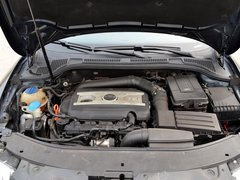新旧高端科技用于石油泄漏(2)
"We're doing something that's never been done before, we're deploying dispersants on the sea bed at the source of the leak. On the surface we have a fleet of a hundred vessels to contain the spill. We are dispersing dispersant from almost an air force of planes. We've got five planes including two Hercules C-130s dispersing dispersant."
Those dispersants, designed to break the oil into small and more manageable globules, are not without their problems, says Defenders of Wildlife Senior Advisor Richard Charter.
"And some of it sinks as tar balls. So in the ocean the toxicity impacts the bio-availability of the oil toxins, and it may be greater as a result of applying the dispersant." Charter says that could mean that fewer birds die in the marshes of Louisiana as the oil washes ashore.
Charter says such methods to contain or slow a spill - like dispersants, skimming boats and floating booms - have been around for decades.
He such methods will only address about 10 percent of the oil. "Even if you have containment booms deployed in the ocean, you quickly reach a certain sea state where the oil goes over the boom and under the boom and there is a certain component of this slick that is under the surface anyway and that just goes right under the boom."
Human factors
Robert Bea, an engineer with the Center for Catastrophic Risk Management at the University of California Berkley has worked on oil disaster teams for five decades.
He compares technology developed for off-shore drilling to that developed to send astronauts into space. Bea says the pattern of repeated failures on oil rigs - including this latest disaster - points to human factors and not prevention technology. "[Among these are] procedures, how people are selected, how they are trained at various levels. And I think that we are yet to see this kind of thinking show up strongly on board these drill rig operations."
Bea hopes the massive oil spill will prompt new and stricter regulations that govern off-shore oil drilling. He says these rules should address not only technical fixes like requiring remote shut-offs, moving operations farther from shore, and better containment strategies, but also management issues like how a rig is staffed and operated.
Bea says the oil and gas industry has consistently opposed stricter federal regulation, most recently in 2009. Among the voices rejecting those rules, he says, was British Petroleum.










